70 Years of the SNSF: from a Few Million to a Billion
The SNSF has been awarding grants to research projects across all scientific disciplines since 1952. How has the amount of funding evolved over time?
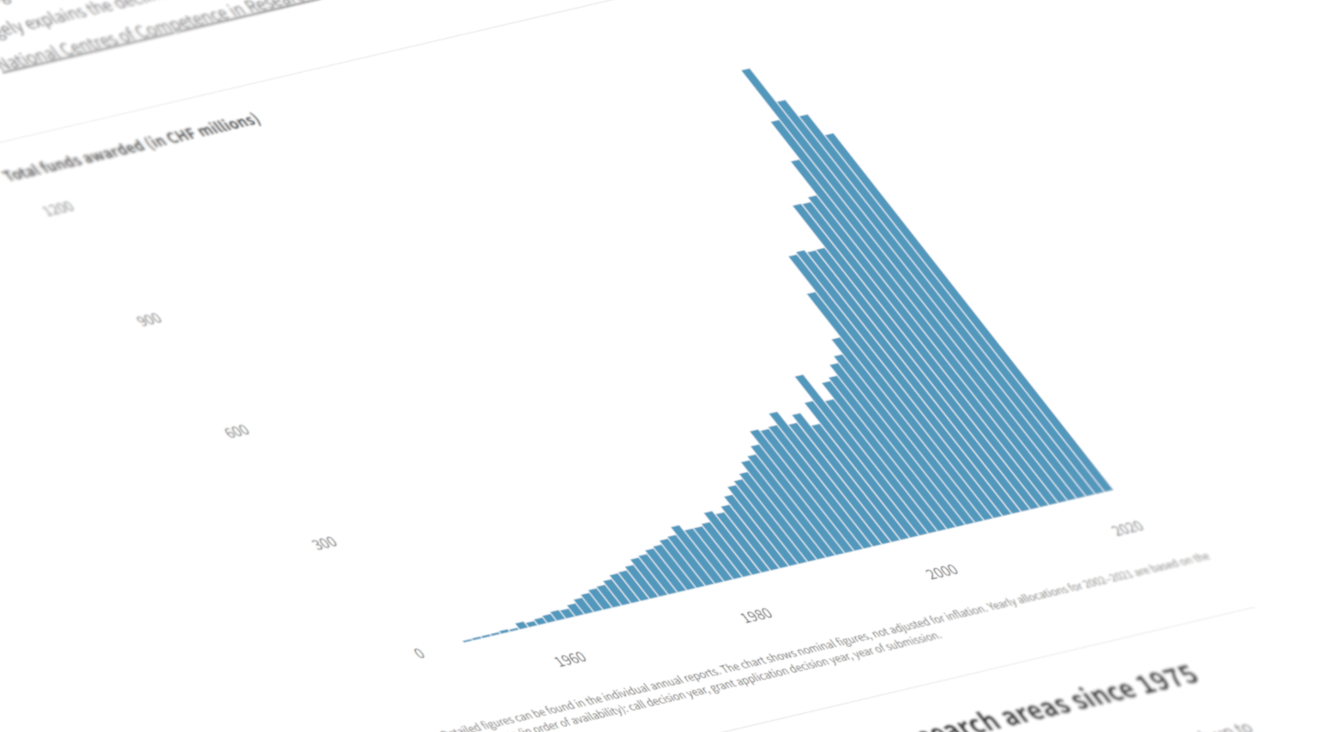
Send us a link
The SNSF has been awarding grants to research projects across all scientific disciplines since 1952. How has the amount of funding evolved over time?

A coalition of research funders has been advocating for free, unrestricted access to publications since 2018. The SNSF is now joining them and adapting its Open Access requirements.

SNSF-funded research produced a total of 13,938 publications in 2020, 63% of which are freely accessible. Upgrades in monitoring capabilities make the positive trend towards more Open Access (OA) more readily visible.

In Switzerland, more women than men study at universities - yet women professors are still in the minority.
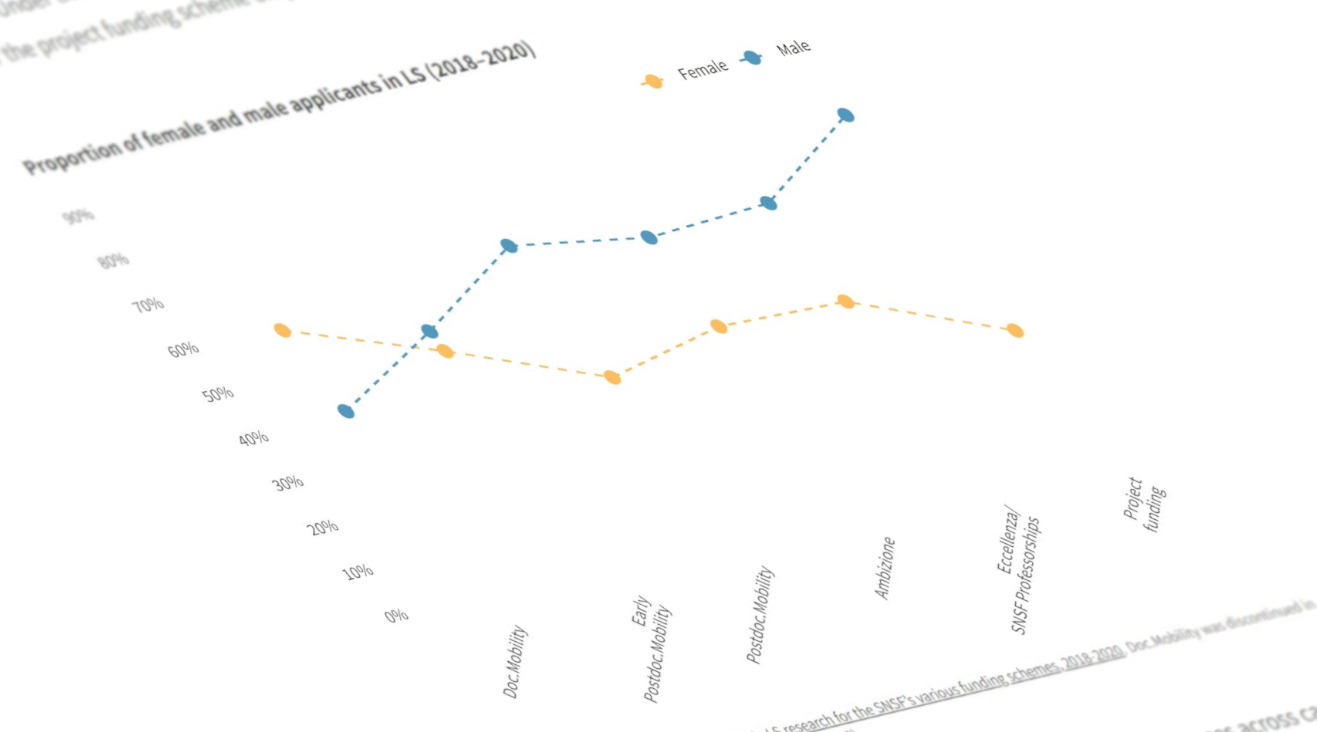
The SNSF Starting Grants 2022 target researchers who wanted to apply for a 2022 ERC Starting Grant or for an SNSF Eccellenza Professorial Fellowship. Consequently, there will be no Eccellenza call 2022.

Using Emma as an example, the career path of an early career researcher whose PhD was financed by an SNSF project is profiled. To this end, data from the Federal Statistical Office (FSO) and the SNSF was combined and analysed.
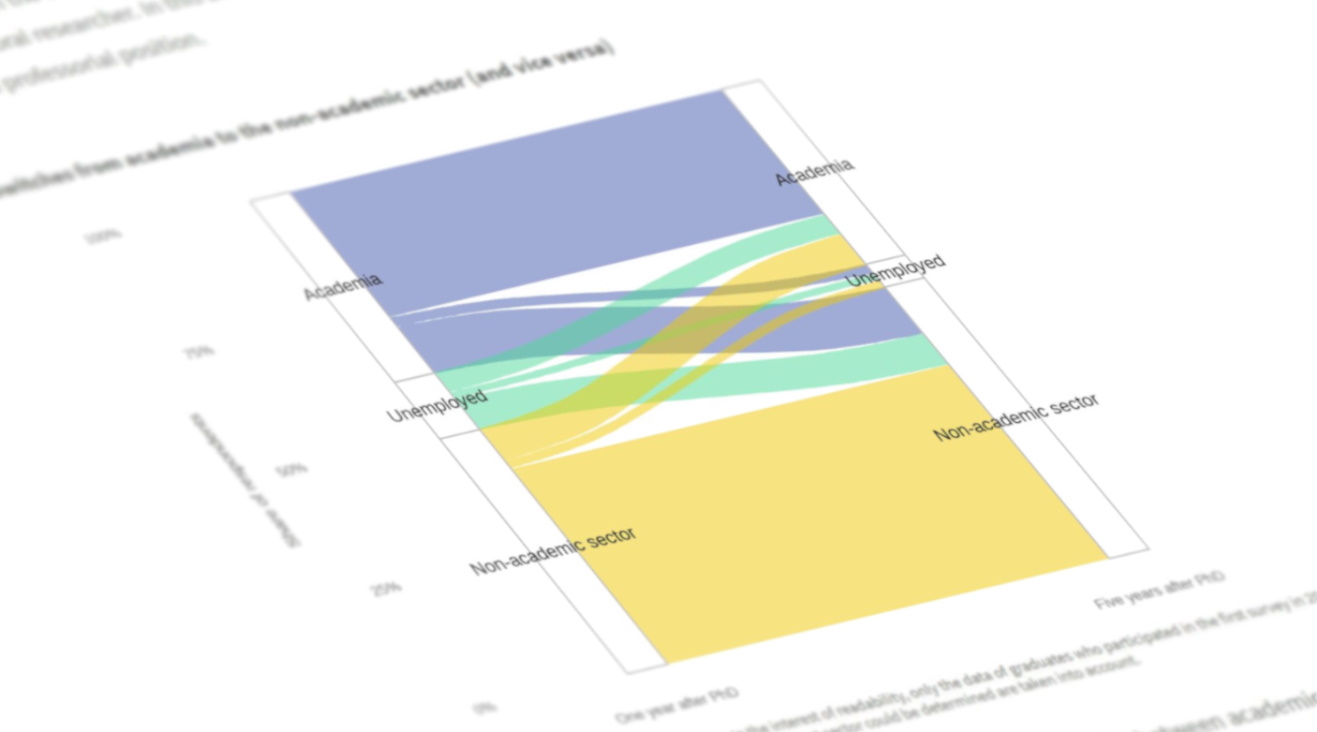
The SNSF is launching a new pilot project: researchers will be able to publish their open access articles via the ChronosHub platform, thereby saving a lot of time and effort.

Studies and surveys confirm that during the COVID-19 pandemic, women's workload at home has increased. Does that mean women researchers are also submitting fewer proposals to the SNSF? Analyses show that, with one exception, their share has remained stable.
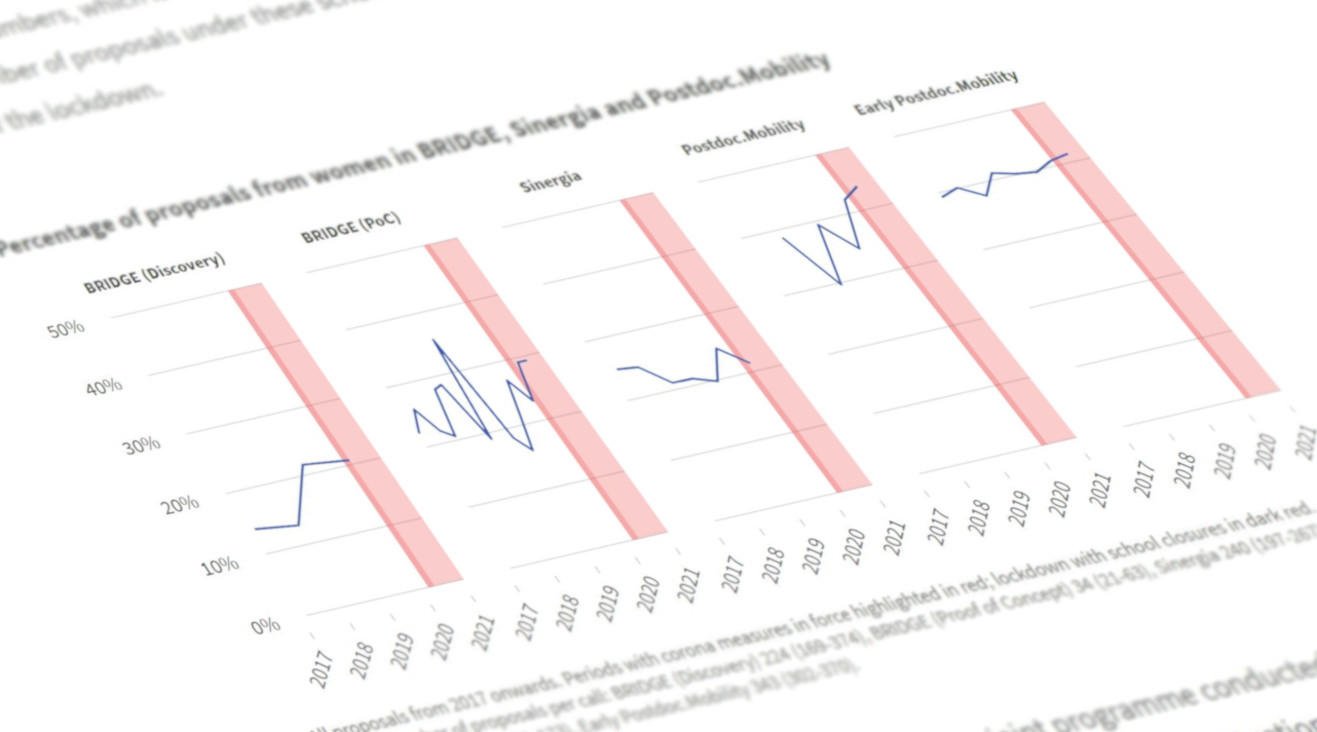
The SNSF meticulously examines its funding activities. From now on, it will publish these analyses on its data portal. To kick things off, Open Access, ERC grants and women scientists during the pandemic are in focus.
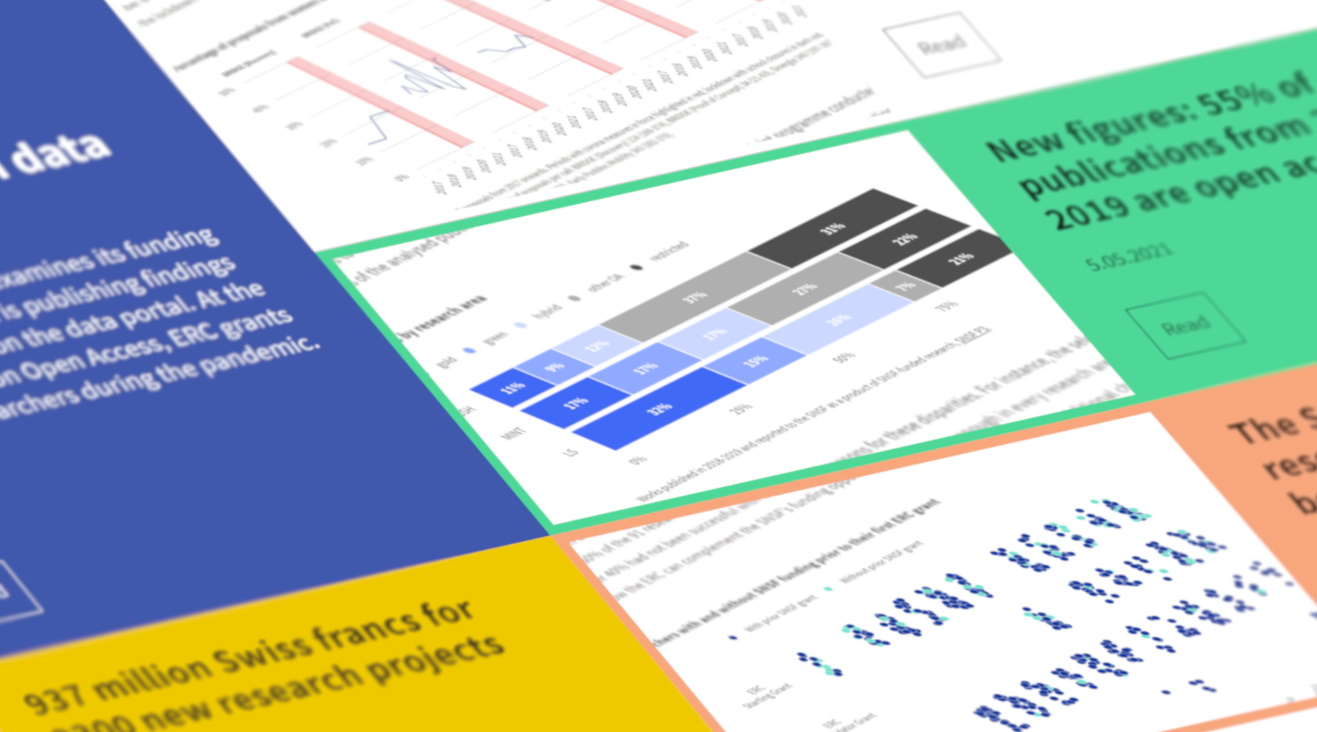
The SNSF has adopted the DORA recommendations in its career funding schemes and adapted some other criteria. This will make the selection process even fairer and more inclusive of re-searchers with diverse career paths.
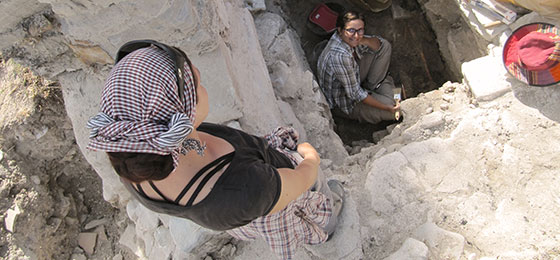
The Swiss National Science Foundation's new Data Portal presents interactive key figures about research grant funding activity. In addition, its COVID-19 project registry provides information about Swiss research projects seeking answers to the COVID-19 pandemic.
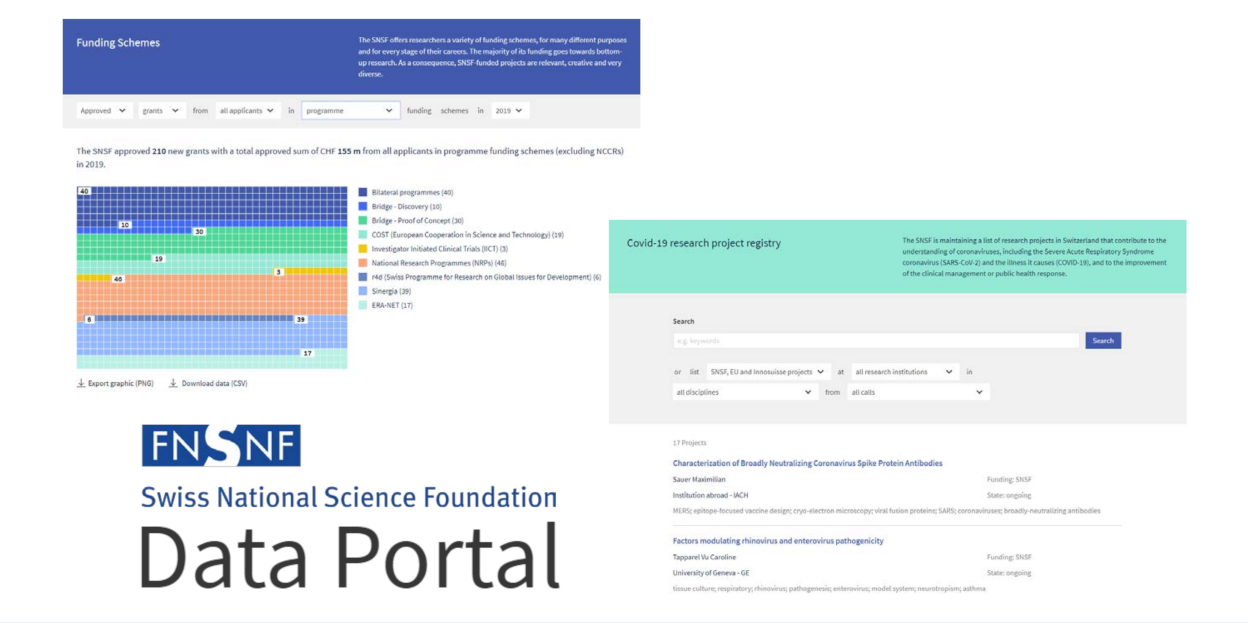
In response to the Covid-19 pandemic, swissuniversities, the Swiss National Science Foundation and the Consortium of Swiss Academic Libraries appeal to all publishing houses to make their publications freely accessible.

The Swiss National Science Foundation is testing a new CV format for researchers applying for project funding in biology and medicine (submission deadline 01 April 2020).
On 11 February, the International Day of Women and Girls in Science, the SNSF's social media channels will be reserved for stories about women researchers. The aim is to enhance the visibility of their research projects.

The SNSF is testing a new, standardised structure for CVs. The aim is to facilitate comparisons between applicants and make track record assessment more transparent.

Do Swiss researchers share their data with other researchers and with the public? And if not, why? Which data repositories and other channels do they use for data sharing? A large-scale survey by the SNSF and swissuniversities offers some answers.

The Swiss Programme for International Research by Scientific Investigation Teams promotes team-oriented cross-border research.

It has never been so easy to obtain grants for open access publications from the SNSF. Researchers can now apply for them on the mySNF online platform – even after the project has ended.

The SNSF promotes women in research with the PRIMA funding scheme and its equality grants. A legal opinion now confirms that these equality measures are not just legally valid. They are necessary.

European and national research funders are expected to commit all researchers to granting open access to their publications as of 2020. The SNSF supports this Plan S. However, it is not in a position to add its signature to the plan at present.

The SNSF is strengthening publishing Open Access: as of 1 April 2018, it will be easier to publish books and journal articles that are openly accessible.

All publications produced in SNSF-funded projects freely available in digital format as of 2020.

With the aim of maintaining the competitiveness of Swiss research, the SNSF is launching a new career funding scheme at assistant professor level.
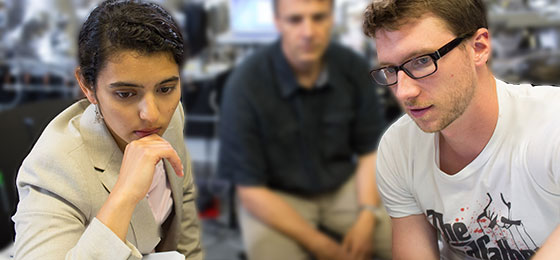
The market is dominated by just a few publishers who exercise their power ruthlessly.
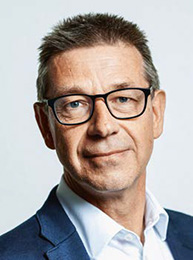
The winning entries from the first SNSF Scientific Image Competition offer a view of science that is aesthetic, nuanced and complex.

Matthias Egger, internationally renowned epidemiologist and public health expert, will be the new president of the National Research Council of the SNSF as of 2017.

Many researchers are positive about the new, burgeoning science culture, but they still hesitate to enter into an open exchange of knowledge. There are many reasons why – such as a lack of knowledge about data management and the fear of intellectual property theft.
